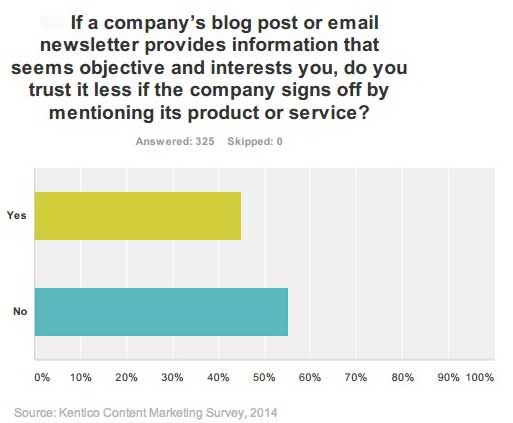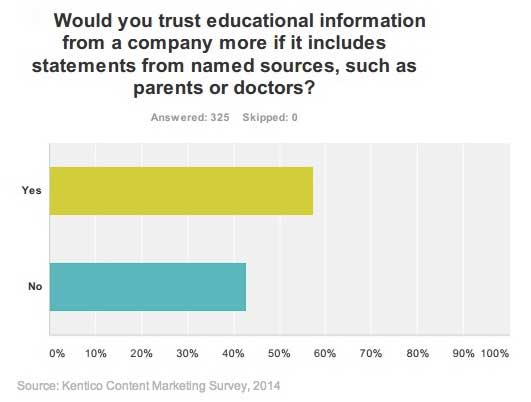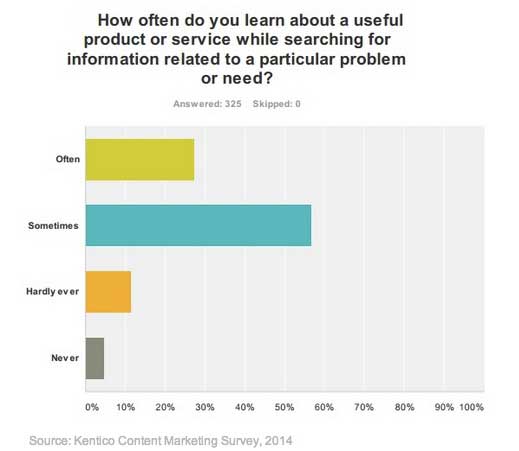Most consumers (74%) say they generally trust educational material from a business as long as it seems objective and doesn't explicitly try to sell a product/service, according to a recent report from Kentico.
However, trust is extremely fragile: Even just adding a product pitch to the end of an otherwise objective blog post or newsletter brings the credibility level down significantly, with only 45% of consumers saying they trust such content.

Other factors that make consumers skeptical about content from marketers include referencing things that can't be verified with other sources (46% say this prevents them from trusting information), leaving out/not addressing different perspectives (17%), and presenting information in way that hides it is coming from a company (15%).
Below, additional key findings from the report, which was based on data from a survey of 325 US adults (age 18+).
Corroboration
- 49% of respondents say they will generally trust what a company says about a particular topic but will also corroborate with other sources.
- 57% say educational information from a company is more credible when it contains verification from named sources.

Sharing and Discovery
- 69% of the consumers surveyed say a company's educational information is more credible when discovered through a friend or family member.
- Asked how often a company's educational content comes up while searching for topics related to a particular problem or need, 27% report it happens often; 57%, sometimes; 11%, hardly ever; and 5%, never.

Demographic Differences
- Women are 11% more trusting of content marketing than men, and they trust content shared by friends and family members 20% more than men do.
- 60+ year-olds are 17% more trusting than 18-29-year-olds, but the same 60+ age bracket is 14% less trusting of content passed through friends and family members than the 18-29 age group.
About the research: The report was based on data from an online survey of 325 US adults (age 18+) conducted in May 2014.




